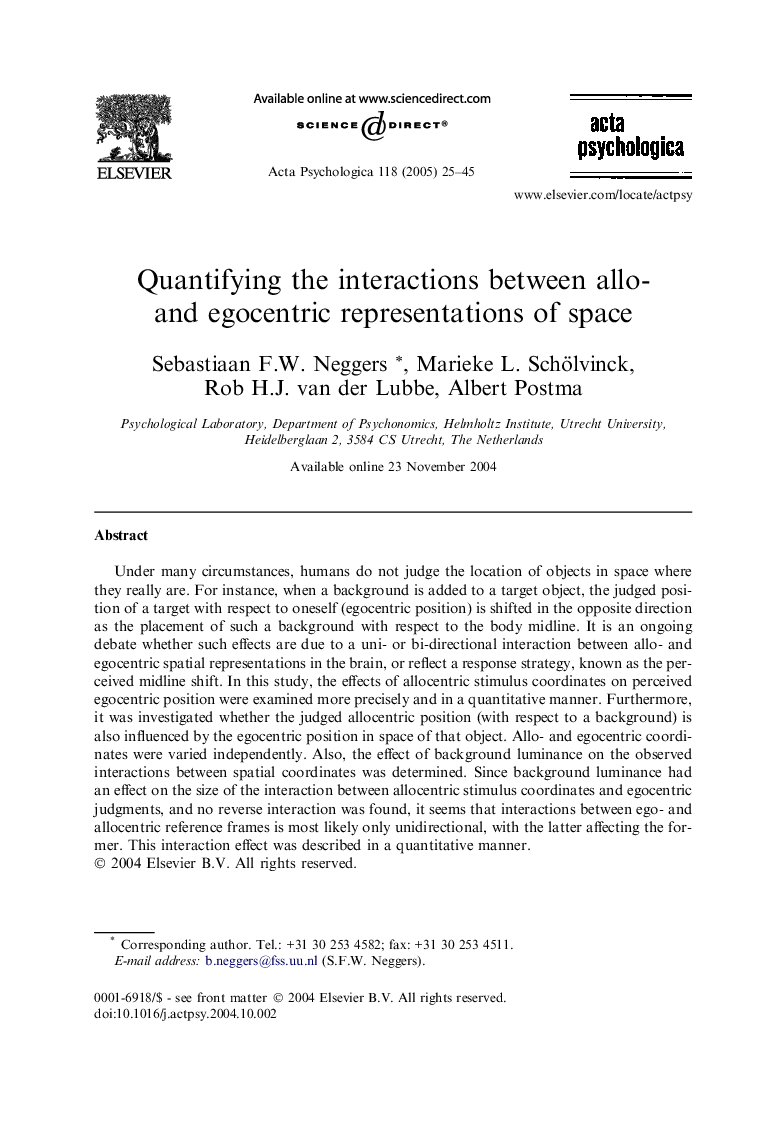| Article ID | Journal | Published Year | Pages | File Type |
|---|---|---|---|---|
| 9721979 | Acta Psychologica | 2005 | 21 Pages |
Abstract
Under many circumstances, humans do not judge the location of objects in space where they really are. For instance, when a background is added to a target object, the judged position of a target with respect to oneself (egocentric position) is shifted in the opposite direction as the placement of such a background with respect to the body midline. It is an ongoing debate whether such effects are due to a uni- or bi-directional interaction between allo- and egocentric spatial representations in the brain, or reflect a response strategy, known as the perceived midline shift. In this study, the effects of allocentric stimulus coordinates on perceived egocentric position were examined more precisely and in a quantitative manner. Furthermore, it was investigated whether the judged allocentric position (with respect to a background) is also influenced by the egocentric position in space of that object. Allo- and egocentric coordinates were varied independently. Also, the effect of background luminance on the observed interactions between spatial coordinates was determined. Since background luminance had an effect on the size of the interaction between allocentric stimulus coordinates and egocentric judgments, and no reverse interaction was found, it seems that interactions between ego- and allocentric reference frames is most likely only unidirectional, with the latter affecting the former. This interaction effect was described in a quantitative manner.
Related Topics
Life Sciences
Neuroscience
Cognitive Neuroscience
Authors
Sebastiaan F.W. Neggers, Marieke L. Schölvinck, Rob H.J. van der Lubbe, Albert Postma,
